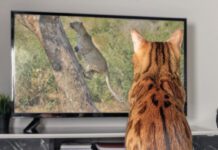To you ever wonder if any of the anxiety and tension you sometimes bring home can also affect your pets? These challenging economic times can indirectly be hard on our cats, too. Experts feel that cats will indeed react to changes in the emotional behavior of their owners. So, if we believe that cats can sense our stress – and we certainly are living in an era of increased worry and anxiety – it stands to reason that our cats are experiencing higher levels of stress, as well. At what point are our feline friends exposed to more stress then they can handle?
Pay Attention. “Cats are subtle in expressing stress,” explains Dr. Houpt, VMD, PhD, DACVB, and the James Law Professor of Behavior Medicine at Cornell Universitys College of Veterinary Medicine. “A cat will lie like a sphinx when its not relaxed,” she explains. The cats eyes may also be dilated (see related article on page 4 of this issue) and its ears slightly flattened. More severely stressed cats will hide or not eat.
Of course, the proactive owner can take matters into his or her hands (literally) before a cat shows any signs of being overwhelmed by the owners emotional needs. “Our increased emotional dependence becomes unfair to our pets unless we do something to alleviate their additional stress,” says Kathy Cascade, a certified TTouch Training Instructor and owner of Cascade Animal Connection in Stillwater, OK. “Touch can be rewarding to both pet and human.”
The Right Touch. Of course, not just any type of touch will reduce a pets stress: “Patting” has been shown in studies to have the opposite effect of “stroking.” Stroking your cat for four or five minutes a day can have a wonderful effect on reducing your pets stress levels – if your cat enjoys being stroked. “Some cats simply do not like head to tail stroking,” relates Dr. Houpt. For cats that dont enjoy too much petting, Dr. Houpt recommends gently stroking the cat under the chin and on the cheek.



